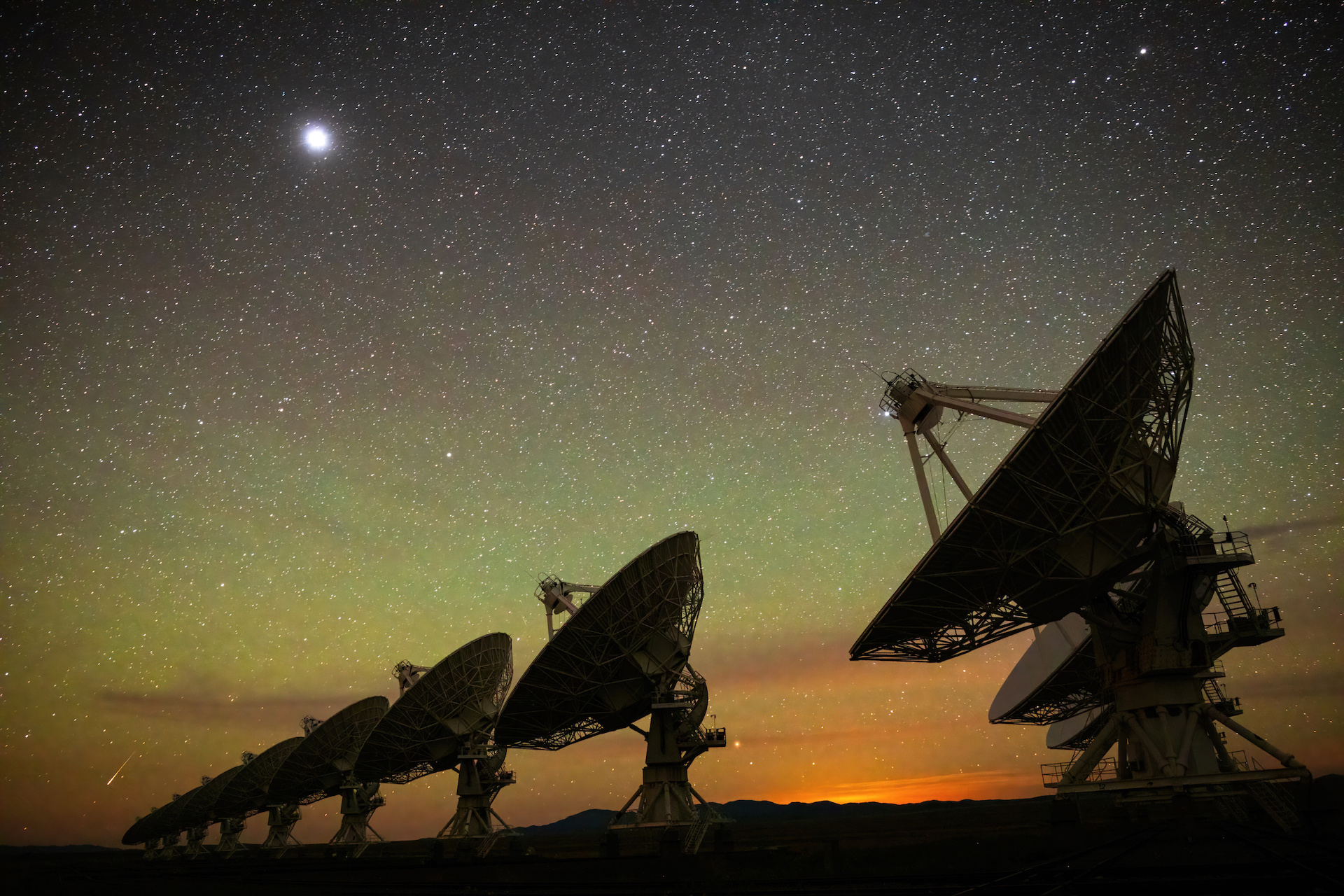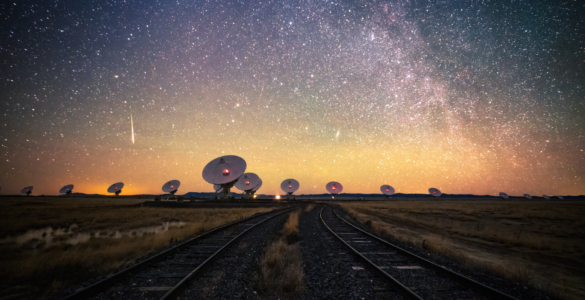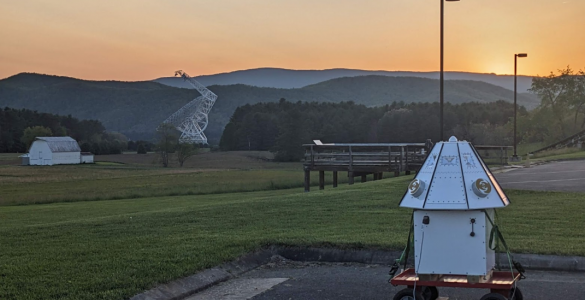NRQZ and PRCZ Instruction
Radio astronomy telescopes are extremely sensitive instruments, spanning great frequency ranges, making them susceptible to many sources of interference. To help protect radio astronomy, the National Radio Quiet Zone (NRQZ) was established by the Federal Communications Commission (FCC) in Docket No. 11745 (November 19, 1958) and by the Interdepartment Radio Advisory Committee (IRAC) in Document 3867/2 (March 26, 1958) to minimize possible harmful interference to the National Radio Astronomy Observatory (NRAO) in Green Bank, WV. For similar protections as the NRQZ, in 1997 the FCC established a Radio Astronomy Coordination Zone in Puerto Rico (PRCZ) under paragraph 25 of the FCC Report and Order ET Docket No. 96-2.
If you’re a frequency coordinator or engineer looking for the tools and contacts to help with NRQZ or PRCZ coordination, check out the NRQZ or PRCZ instructions link below:
VLA and GBT RFI Monitoring
The sensitivity of a radio telescope brings interference challenges across large parts of the spectrum. Often, there are allocations which do not have to coordinate under federal or state rules and regulations, coordinated transmitters which are out of compliance, and other unwanted emissions that lead to radio frequency interference. Understanding these unwanted signals is useful in attempting to mitigate interference, knowing risks associated with an observation, and knowing where a source is coming from.
If you are an observer or spectrum user of our telescopes, there are a number of ways to explore RFI at NRAO sites:
Recent and Upcoming Meetings
Spectrum management is only possible with regulators managing the policy side. Without this crucial step, there would be no rules and regulations to be followed by commercial and federal organizations. As technology advances, rules and regulations become more complex and allocations to parts of the spectrum can change rapidly, creating new challenges. To assist in the growing demand, regulators organize formal meetings for discussions, proposals, and rule making.
Check out recent and upcoming spectrum-related meetings and presentations listed below:
International Telecommunication Union (ITU) Space Connect, Episode 1 – January 30, 2025, LEO Satellite Constellation Fundamentals (watch recording)
AAAS 2025 (Boston, MA) – February 14, 2025, Dark and Quiet Skies: Why Everyone Should Care (C. De Pree)
International Telecommunication Union (ITU) Space Connect, Episode 2 – February 27, 2025, Navigating the Authorization of LEO Services Worldwide (more information)
ITU Working Party 7D Radio Astronomy (Geneva, Switzerland) – March 17-26, 2025, WP 7D Information
Challenges in Sustaining Space as a Resource (University of Colorado Boulder) – June 24-25, 2025, Information









